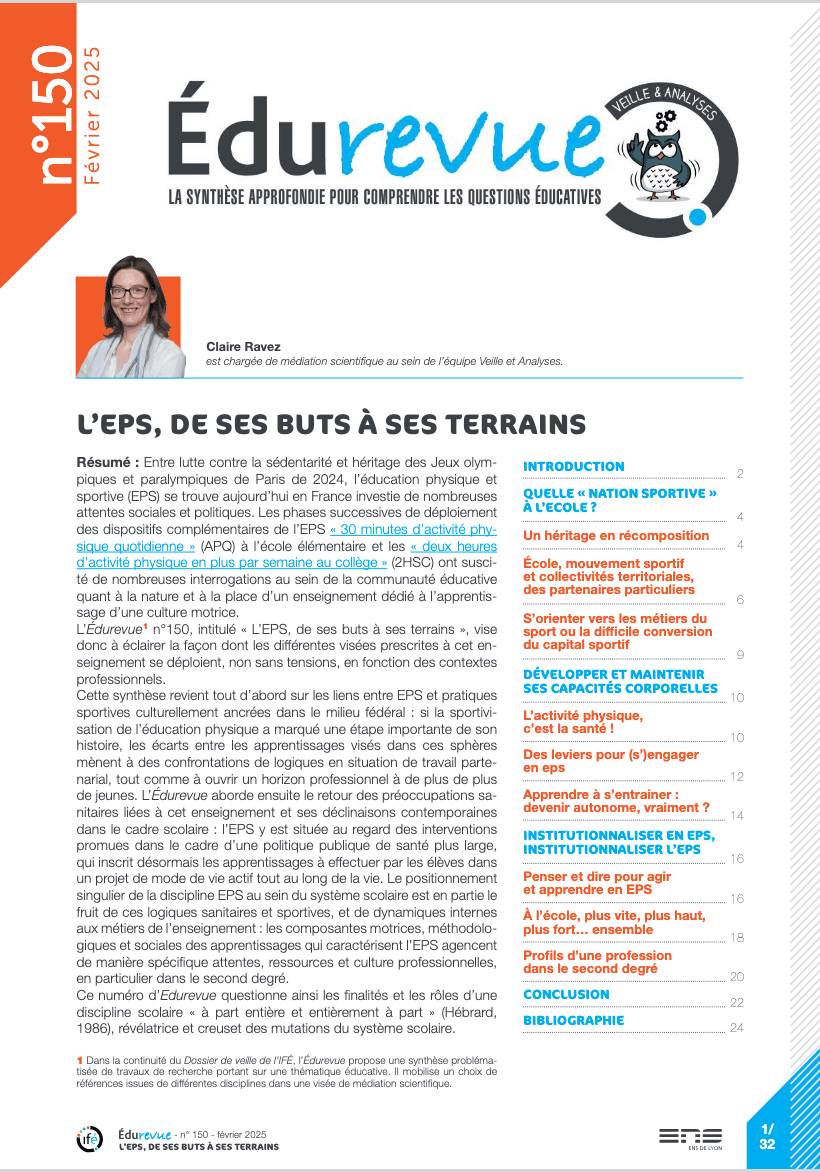Se sentir agent de son apprentissage : étude du sens de l’agentivité dans l’apprentissage, au travers d’un dispositif de réalité virtuelle.
Auteur(s) : HURAULT Jean-Christophe
Date de soutenance : 2021
Thèse délivrée par : Université de Montpellier
Section(s) CNU : section 16 : Psychologie, psychologie clinique, psychologie sociale
Sous la direction de : Lionel BRUNEL
Jury de thèse : André Tricot ; Pascale Piolino ; Guillaume Vallet ; Elodie Labeye ; Valérie Gyselinck
"Le sens de l'agentivité est une notion qui fait référence à l’expérience subjective de contrôler ses actions, mais également aux mécanismes qui permettent d’attribuer une origine causale aux événements. Elle permet de se sentir agent, c’est-à-dire de ressentir un lien entre des modifications de l’environnement et ses actions afin de s’en attribuer l’origine. Ce vécu s’enracine ainsi clairement à la fois sur des mécanismes sensorimoteurs, mais également sur des mécanismes cognitifs. Cela nous amène à réfléchir sur la place que peut avoir le sens de l’agentivité dans le processus d’apprentissage. La thèse que nous défendons dans ce travail est qu’il y a un intérêt à étudier la notion d’agentivité pour mieux comprendre la dynamique d’apprentissage. Dans une première étude, nous présentons une nouvelle mesure du sens de l’agentivité au travers de la validation d’une échelle, la French – Sense of Agency Scale (F-SoAS). La deuxième étude permet de confirmer les liens de cette échelle F-SoAS avec des mesures classiques du sens de l’agentivité. Enfin, au travers de la troisième puis quatrième étude, nous analysons directement l’influence du sens de l’agentivité dans l’apprentissage d’une connaissance abstraite. De manière générale, ce travail montre que plus une personne se sent agent, plus elle sera en mesure de bénéficier d’une situation d’apprentissage, potentiellement au travers de différences dans la prise de perspective ou l’auto-réflexion. Ce travail a été réalisé, notamment, à l’aide de la réalité virtuelle qui, par sa forte immersion sensorielle et ses nombreux moyens d’interaction physique, s’inscrit dans un avenir prometteur des nouvelles technologies d’apprentissage."
Feeling an agent of one's learning : study of the sense of agentivity in learning, through a virtual reality device.
"The sense of agency is a recent notion which refers to the subjective experience of controlling one's own actions, but also to the mechanisms which allow one to attribute a causal origin to the events. It allows one to experience oneself as an agent, i.e. to feel a link between changes in the environment and one's own actions in order to attribute an origin to them. This experience is thus clearly rooted both in sensorimotor mechanisms and in cognitive mechanisms. This leads us to reflect on the place that the sense of agency can have in the learning process. The argument that we defend in this thesis's work is that there is an interest in investigating the notion of sense of agency in order to gain a better understanding of the dynamics of learning. In the first experiment, we present a new measure of the sense of agency through the validation of a scale, the French - Sense of Agency Scale (i.e., F-SoAS). The second experiment allows us to confirm the relationship of this F-SoAS scale with classical measures of the sense of agency. Finally, through the third and fourth experiments, we directly analyze the influence of the sense of agency in the learning of an abstract mathematical knowledge, the arithmetic mean, with. In general, this work shows that the more a person feels like an agent, the more he, or she will be able to benefit from a learning situation, potentially through differences in perspective taking or self-reflection. This work was carried out, in particular, with the use of a virtual reality device, which, by its strong sensory immersion and its many possibilities of physical interaction, is part of a promising future of the new technologies for learning."
URL : https://tel.archives-ouvertes.fr/tel-03467940/document
mot(s) clé(s) : apprentissage et développement cognitif, technologie éducative












